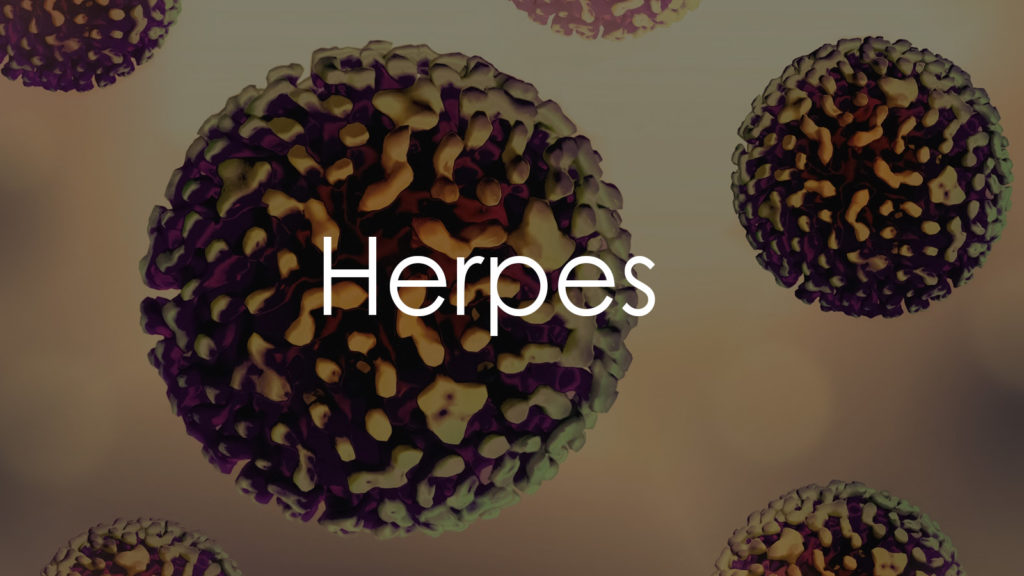Herpes symptoms can vary widely, from mild and unnoticed to severe and disruptive. The two main types of herpes simplex virus, HSV-1 and HSV-2, cause different symptoms, often depending on the area of the body affected. While HSV-1 commonly causes oral herpes, HSV-2 is typically responsible for genital herpes. Both types can, however, cause infections in either location.

Primary Herpes Infection Symptoms
The primary herpes infection refers to the initial outbreak, which can be more severe than subsequent recurrences. Symptoms usually appear within two weeks of exposure to the virus.
General Symptoms
During the primary infection, individuals may experience systemic symptoms that affect the whole body.
- Fever: A mild to high fever is common during the initial outbreak.
- Fatigue: Generalized tiredness and weakness can occur.
- Swollen Lymph Nodes: Lymph nodes, particularly in the neck or groin, may become swollen and tender.
Oral Herpes (HSV-1) Symptoms
HSV-1 typically causes oral herpes, presenting with specific symptoms around the mouth and face.
- Cold Sores: Painful blisters or sores, often on the lips, around the mouth, or on the face.
- Tingling and Itching: Initial sensations of tingling, itching, or burning before blisters appear.
- Painful Gums: Swollen, red gums, sometimes with small sores.
- Sore Throat: Discomfort or pain in the throat, sometimes accompanied by swollen tonsils.
Genital Herpes (HSV-2) Symptoms
HSV-2 generally causes genital herpes, with symptoms appearing in the genital or anal area.
- Blisters and Sores: Painful blisters or sores on the genitals, buttocks, thighs, or anus.
- Painful Urination: Discomfort or pain during urination due to sores around the urethra.
- Itching and Burning: Intense itching or burning sensations in the genital area.
- Vaginal Discharge: An unusual discharge from the vagina in women.
Recurrent Herpes Infection Symptoms
After the initial outbreak, the herpes virus remains dormant in the body and can reactivate, causing recurrent infections. Symptoms of recurrent infections are usually milder and shorter in duration than the primary outbreak.
Triggers for Recurrence
Various factors can trigger a recurrence of herpes symptoms.
- Stress: Physical or emotional stress can provoke an outbreak.
- Illness: Other infections or illnesses can weaken the immune system, triggering herpes symptoms.
- Menstruation: Hormonal changes during menstruation can cause a recurrence in some women.
- Sun Exposure: Excessive sunlight exposure can lead to an outbreak, particularly of oral herpes.
Recurrent Oral Herpes Symptoms
Recurrent oral herpes typically involves fewer and less severe symptoms compared to the initial outbreak.
- Cold Sores: Recurrent blisters or sores at the same location or nearby the initial outbreak.
- Tingling and Itching: Often the first signs of a recurrence, indicating blisters are about to form.
Recurrent Genital Herpes Symptoms
Recurrent genital herpes also tends to be milder than the primary infection.
- Blisters and Sores: Fewer, smaller, and less painful blisters or sores in the genital area.
- Itching and Burning: Persistent sensations of itching or burning in the affected area.
Atypical Herpes Symptoms
In some cases, herpes can present with atypical or less common symptoms, making diagnosis more challenging.
Asymptomatic Herpes
Many individuals with herpes may not exhibit noticeable symptoms, but they can still transmit the virus to others.
- No Visible Symptoms: No blisters, sores, or other visible signs of infection.
- Viral Shedding: The virus can still be present on the skin and spread to others.
Misdiagnosed Symptoms
Herpes symptoms can sometimes be mistaken for other conditions, leading to misdiagnosis.
- Razor Bumps: Blisters or sores might be mistaken for razor bumps or ingrown hairs.
- Yeast Infections: Genital itching and discomfort may be misdiagnosed as a yeast infection.
- Bacterial Infections: Sores and discharge could be wrongly attributed to bacterial infections.
Complications from Herpes Symptoms
Severe or untreated herpes can lead to complications, particularly in immunocompromised individuals.
Herpes Simplex Encephalitis
A rare but serious complication where the virus spreads to the brain.
- Symptoms: Fever, headache, confusion, seizures, and altered consciousness.
- Urgency: Immediate medical attention is required.
Herpetic Whitlow
Herpes infection on the fingers or hands, often due to touching the infected area.
- Symptoms: Painful blisters or sores on the fingers, swelling, and redness.
- Precaution: Avoid touching the sores and practice good hygiene to prevent spread.
Neonatal Herpes
Newborns can contract herpes from the mother during childbirth, which can be severe.
- Symptoms: Lethargy, irritability, fever, and blisters on the skin.
- Prevention: Pregnant women with herpes should discuss preventive measures with their healthcare provider.
Importance of Early Recognition and Treatment
Recognizing the symptoms of herpes early is crucial for effective management and reducing the risk of complications.
Antiviral Medications
Prompt treatment with antiviral medications can help manage symptoms and reduce the duration of outbreaks.
- Effectiveness: Medications can speed up healing and reduce the frequency of recurrences.
- Administration: Can be taken orally, topically, or in severe cases, intravenously.
Preventive Measures
Taking steps to prevent the spread of herpes is essential for individuals with the virus.
- Safe Practices: Avoid kissing or sexual contact during an outbreak, use condoms, and do not share personal items.
- Disclosure: Informing sexual partners about the infection to take precautions.
Conclusion
The symptoms of herpes can range from mild to severe, with variations depending on the type of virus and the location of the infection. Recognizing these symptoms early and understanding the triggers for recurrence can help manage the condition effectively. Early diagnosis and treatment, combined with preventive measures, are key to controlling the spread of herpes and improving the quality of life for those affected. Staying informed about the symptoms and seeking medical advice when necessary are crucial steps in managing herpes effectively.